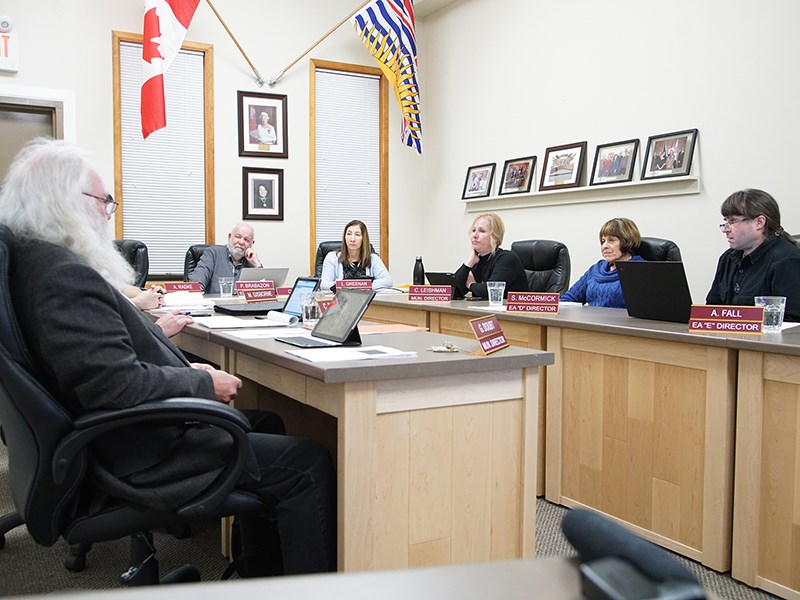qathet Regional District directors have approved a new remuneration and expenses bylaw designed to simplify administration of directors’ pay.
At the February 27 regional board meeting, directors passed Bylaw 558, 2020, which authorizes payment of remuneration and expenses to directors and alternate directors of the regional district.
According to documentation attached to the bylaw, a director’s base remuneration is $15,555. Electoral area directors receive an additional premium of $5,741.
Electoral Area D’s director from Texada Island receives a location premium of $2,000 and the Electoral Area E director from Lasqueti Island receives a location premium of $3,316. The board chair receives a premium of $14,425.
With consolidation of remuneration and expenses, there is no meeting pay for directors of the regional board, as was the case before the bylaw.
In discussion at the regional board meeting on resolutions from the finance committee, Electoral Area D director Sandy McCormick said she was against endorsing this bylaw. She said a consultant had presented a report with a lot of information about how to save staff time, which translates into savings of money.
“I get it’s important to save staff time but I do not believe this is the right answer,” said McCormick. “Meeting allowances are fair. Without meeting allowances there isn’t the incentive to give up hours which would be spent. If there isn’t compensation for giving up half a day to attend a C3 meeting, why would I do that?”
She said the consultant recommends that a regional director lose base pay when an alternate director attends a meeting on regional director’s behalf. McCormick said when her alternate director recently attended a finance committee meeting on her behalf, McCormick read the material, then spent an entire afternoon with the alternate director going through the material. McCormick said she then spent time with the alternate director after the meeting to find out what happened.
“I don’t think I spent any less time, just because I wasn’t able to attend that meeting, than I would if I actually attended the meeting,” said McCormick. “There needs to be a better solution that recognizes the importance of saving staff time, but also recognizes the sensitivity of the roles elected directors play.”
McCormick said she would like to send the matter back to staff for more work because she does not believe this is the right solution.
Electoral Area B director Mark Gisborne said he concurred with McCormick.
Chief administrative officer Al Radke said if the matter is coming back to staff, the board had better put some money into the budget to bring back the consultant.
“The manager of financial services has shared that her department does not have any time to deal with any of these major changes between now and March 30,” said Radke.
Board chair Patrick Brabazon said the appropriate time to debate the details of the bylaw would be at second reading, later in the meeting.
At second reading, Electoral Area C director Clay Brander proposed an amendment to a clause that stated alternate directors shall be eligible to claim a taxable meeting allowance of $260 when attending meetings as the alternate to an elected director. Brander suggested the figure be amended to $130. The amendment carried unanimously.
City director CaroleAnn Leishman made a motion to strike out an allowance: that the cost or alternate directors’ meeting allowances shall be recovered through decreases to the base remuneration of the respective elected director, and that elected directors must authorize each alternate director meeting claim. The motion carried unanimously.
Leishman asked if the change to base pay, rather than a per meeting allotment, was easier for staff, not having to account for all of the meetings directors attend.
Manager of financial services Linda Greenan said it would definitely be easier to go to the new system.
Second reading of the bylaw passed, with directors McCormick and Gisborne opposed.
The bylaw also passed third reading, with McCormick and Gisborne opposed, and final adoption, with Gisborne opposed.
The board also gave unanimous consent to review the remuneration bylaw in a year.



